Return on Click Investment
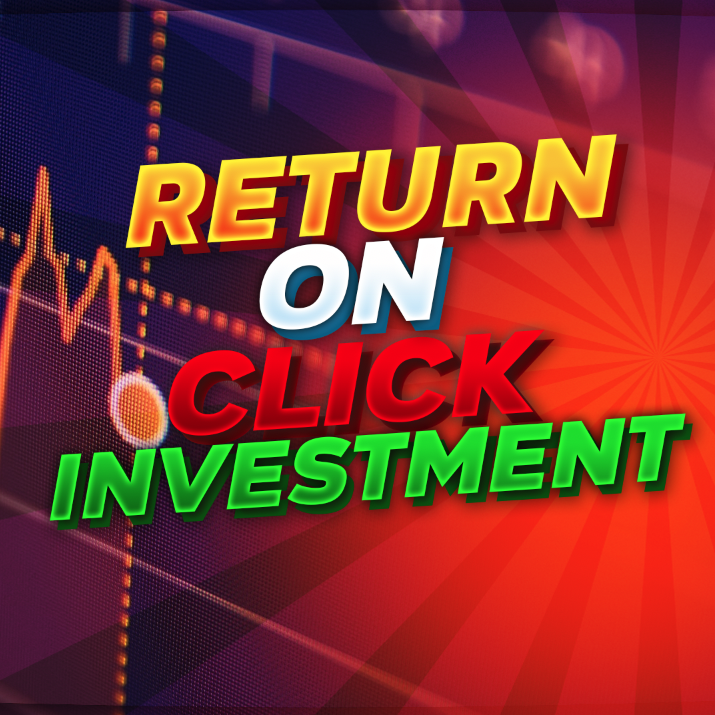
What is the Return on Click Investment?
And why is it important to maximize your conversions?
Today we’re reviewing a super insightful article from the Baymard Institute, describing what this concept they invented: Return on Click Investment.
Mastering this idea will help you to better organize your website, and know how to present information to ensure your visitors stay on your website and complete their purchases.
If you liked the video, please help us make it more visible by liking, subscribing, and commenting below. Feel free to share the video with anyone it may be useful!
Ultimate Guide to Facebook Retargeting
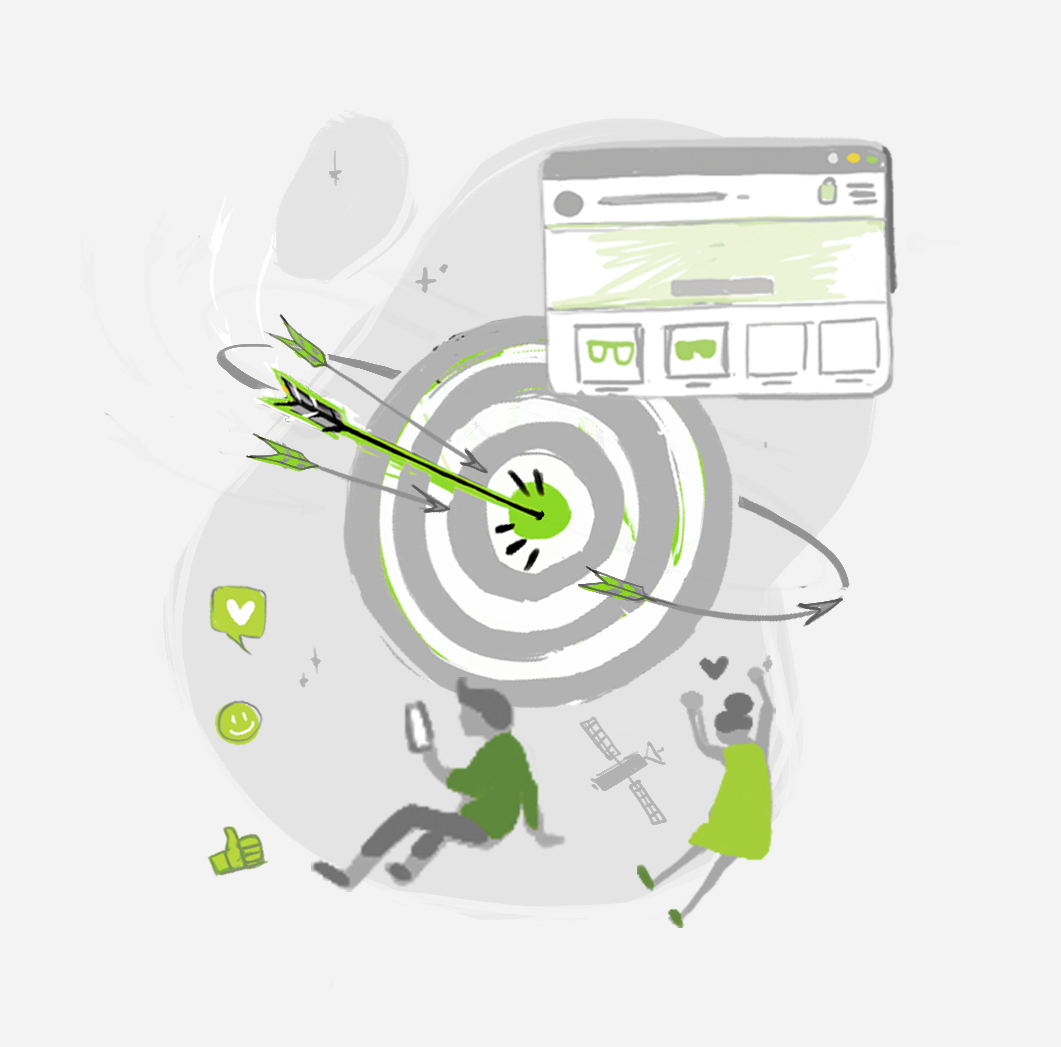
While Facebook ad retargeting is effective, there are limitations to promoting products solely through social media! This post explores how to broaden your online store’s visibility, and use “layered retargeting” to reach customers across the entire Internet – not just Facebook 😊
Increase Sales on Shopify by Retargeting Outside of Facebook
Business Owners using Facebook ads may have noticed that, while effective, there are clear limitations to advertising on the Facebook network. Sure, it gives access to popular platforms like Instagram, but remember there are roughly 5 billion people who use the internet regularly! While Facebook has ~2 billion regular users, you miss out on 3 billion potential customers by showing ads only on Facebook.
Who knows? Your niche audience may not be big fans of Mark Zuckerberg 😉 To increase sales on Shopify, business owners need to find ways to look beyond advertising only on social media. While it’s undoubtedly effective, there are marketing tactics that layer ad retargeting, thereby reaching users in and outside of Facebook.
The Undeniable Effectiveness of Ad Retargeting Campaigns
If you aren’t already making use of Facebook’s ad remarketing features, it is time to hop on board. A recent survey of 320 companies found that 86.4% used retargeting campaigns, and over half of those businesses increased their revenue through ad retargeting campaigns. In other words, the metrics speak for themselves. After creating the right custom audiences and setting a reasonable budget, retargeted Facebook ads can help increase sales on Shopify.
… But let’s analyze those numbers a little deeper. While retargeting on Facebook has its merits, 20% of e-commerce businesses in the same survey reported no benefits from their retargeting campaigns.
So, we decided to dig a little further and ask, “Is there a way to broaden retargeted Facebook ads beyond social media?” Doing so, and placing ads in different contexts, may be the key to giving these ad campaigns a boost – and increase sales on Shopify in the process.
Limitations of Advertising on Facebook
First, we need to identify the limits of Facebook ads.
50% of customers online say they like shopping through platforms like Facebook stories… but what about the other 50%? If you are limited to retargeting only through the Facebook (Meta) network, you are potentially losing out on reaching half of your customer base. Other users want to see ads in different online contexts – beyond their social media account!
To increase sales on Shopify, it is best your e-commerce business gets exposure beyond social media.
Why? Credibility and Brand awareness.
Showing ads to retargeted users – when they are not on Facebook itself – is impossible with Facebook’s software. That could mean the impact of your retargeted ads are limited, as customers will be inclined to write your brand off as, “That store that only pops up on Facebook.”
To many, that limitation could hurt your brand and make it look less legitimate in the eyes of potential customers. Layering on a broader retargeting service will allow you to show ads to those same users not just on Facebook – but across the entire web. This enhanced brand visibility will make your store appear more viable in the eyes of potential customers, driving more traffic and increasing your sales on Shopify.
Layering “Web” Retargeting on Top of Facebook Retargeting
They key to maximizing the effectiveness of your ad retargeting campaign is to reach beyond social media, and use tools that enable retargeting across the web.
In that scenario, an online user could see your ad on Facebook first, then have a moment of déjà vu when the same ad pops up while they browse a news app on their phone! When the ad appears a third time on their favorite independent blog site, the credibility of the brand has been confirmed in the eye of the customer.
Seeing the store’s promotions in multiple online contexts makes them feel like checking the store out is worth their time, as it engaged them with multiple touches without appearing repetitive. This is the power of layering web retargeting on top of Facebook retargeting – you reach customers when they are in different states of mind, upping the chance they take note of your online promotion. The broadened visibility can help increase your sales on Shopify and boost your brand’s reputation.
Conclusion: Use Menadex to Layer Web Retargeting on top of Facebook
Hopefully by now, you see the promotional power of ad retargeting online businesses. However, very few businesses know how to layer web retargeting on top of their advertising efforts on social media. Broadened web visibility could be the keystone to increasing sales on Shopify!
If you want to get the best return on your ads spent (ROAS), try a free demo by Ad360 today! Our Menadex media offering will automatically layer web retargeting on top of your existing ad campaigns, ensuring you get the broadest appeal and best bang for your buck.
Shopify Blogs: The Key to Boosting Sales?
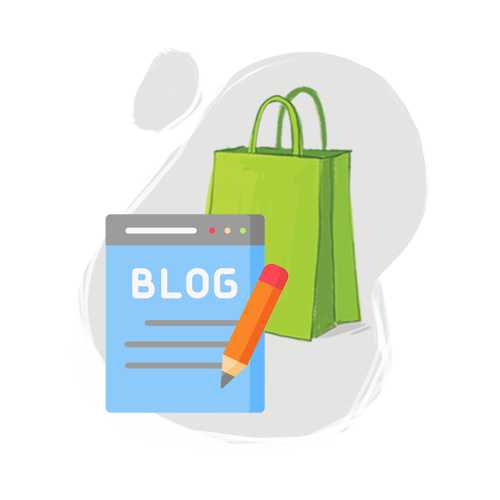
How Blog Content can Increase Sales on Shopify
They say content is king, and for good reason: blogs are a proven method to boost your Google ranking and increase sales on Shopify. This post explores how consistent blog posts can benefit your e-commerce business while also providing a few tips to inspire your own original posts!
Authentic Blogs Support your Shopify Sales
Recently, Google announced that any AI-generated content online will be labelled “spam.” Business owners should reassess the content they are putting out to catch their audience’s audience. Marketing data shows that, while helping increase your Shopify sales, online users primarily read blogs for entertainment and information.
So, when writing your posts, keep an informational, educational, and entertaining tone at the heart of your piece. There’s no need to push your products too hard. Customers who have just discovered your site or product will appreciate quality, authentic posts for their enjoyment. Combined with social media posts and audio-visual entertainment, consistent blog posts can become a crucial element to increasing your Shopify sales.
Blogs Complement Social Media & Video Ads
Think of regular blog posts as an extension of your social media posts. In fact, it’s best to link your Shopify blogs directly on platforms like Facebook, Twitter, and Tik-Tok! All these engaging posts provide a comprehensive narrative you can build regarding your brand and business.
You can embed key infographics, images, and videos into the blog to push your most important audio-visual content across your ad channels. It not longer takes a tech wiz to combine text, picture, and video content, as Shopify has boiled down adding these functions to one click. It’s simple on a technical level, but it does wonders for your reputation online.
An e-commerce store that has an active blog and social media presence appears dynamic, consistent, and trustworthy to your audience. Over time, your Shopify store will increase its traffic and sales by coming across as an authority in your industry. If you can find the time or hire the talent, consistent, quality blog posts will become a key marketing strategy to increase your Shopify sales.
Inconsistent Blog Posts Harm your Google Ranking and Brand Reputation
You ever surf a website, impressed the professional layout, but find that their last blog content post was from 3 years ago…? Not a good sign! It gives the impression the brand is withering, and, despite its clear informational benefit, the business abandoned regular posts.
Not only does infrequent blog posting harm your brand reputation – it costs you ranking on Google’s search engine! Less blogs posts means less webpages for Google to index, and the longer you go without posting, the more you lose authority on Google’s Search Engine.
Even if you can only find time to write a 500 word post – maybe with a video embedded – remember that not each one has to be your magnum opus! Some weeks, it is simply the consistent effort that will benefit your store in the long run. Marketing research shows that e-commerce sites with 11+ blog posts a month experience a spike on monthly traffic. Furthermore, sites with 400+ blog posts archived gain an edge on Google’s search rankings, as the sheer number of webpages indexed bumps them up the rankings ladder! As we all know, a higher spot on Google’s rankings means increased sales on Shopify.

Boast a Call to Action at the End of every post
After providing valuable, entertaining information to your audience for free, drop them a hyperlink or “Call to Action” button at the bottom. In this world, everyone could use a little self-promotion, so have it!
If you want a good “rule of thumb” to follow when deciding what to blog, ask yourself this question: “What would I want to read? What kind of post would I sit back and appreciate someone putting into words for me?” If you know your audience, they’ll appreciate your work, too.
For further assistance and information on the value of blog posts, you can try a free demo by Ad360 today. Our app provides 360 degree coverage on all aspects of your digital marketing, giving you a sense of clarity on how to best promote your product and boost your Shopify sales. See what we did there? 😉 Reach out today!
The Power of a Central Ad Dashboard
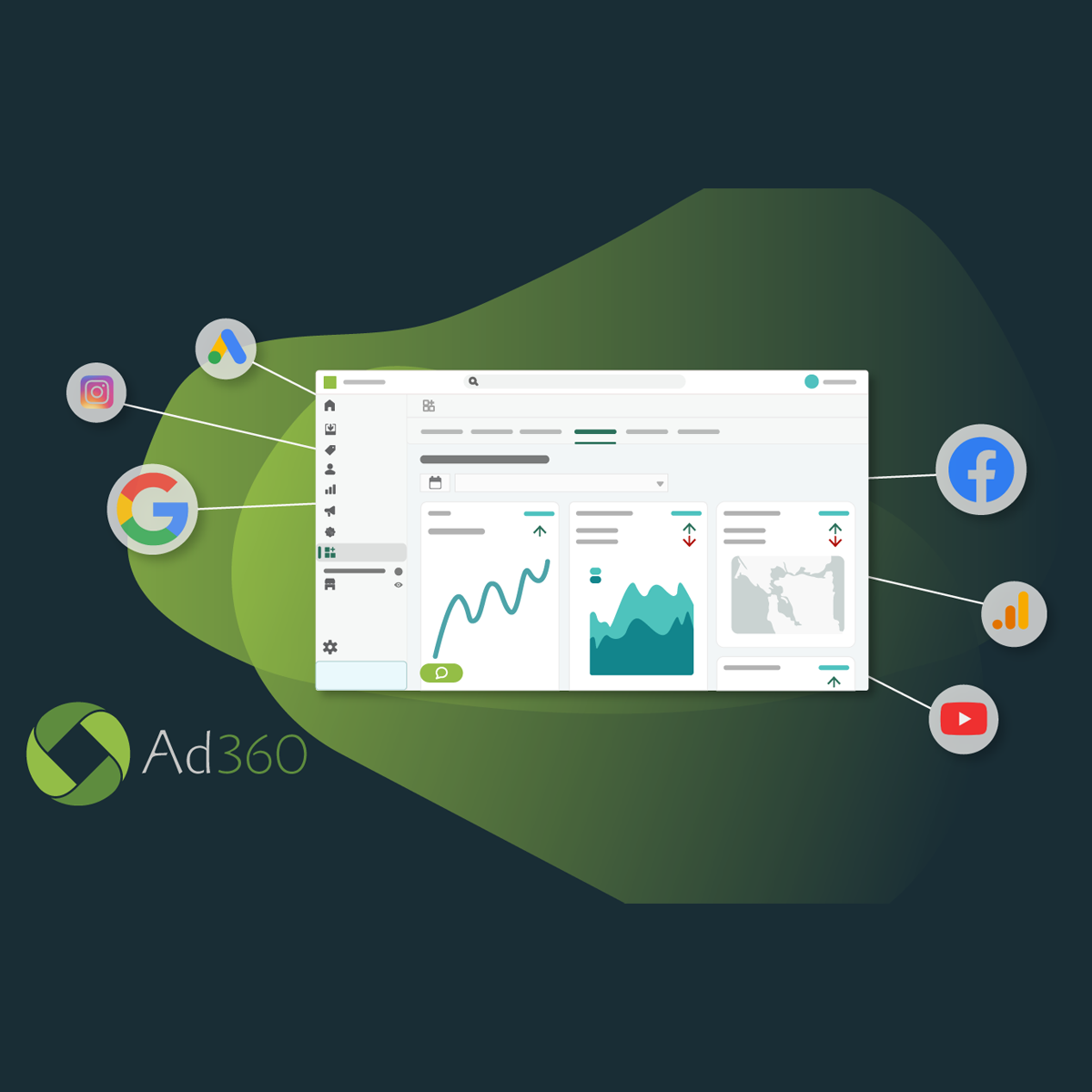
Runnings Ads Across Every Online Platform is Too Complex
There are pros and cons to leveraging multiple online platforms for your ad campaigns.
Web services like Meta (Facebook, Instagram, WhatsApp), Google, Tik Tok, Twitter, and Reddit, reach wide audiences – but each platform’s presentation varies in significant ways. On paper, running ad campaigns across all search engines and social media platforms may seem the best way to boost your brand visibility and increase sales on Shopify!
… It also sounds super complicated. Imagine having to log into each separate ad interface, and learn the idiosyncrasies of all the different sites. Even more, you need to find a way to effectively compare each ad channel while analyzing your digital marketing strategy. Just the thought of lining up sales metrics from these separate ad channels gives us a headache!
That is why Ad360 is here to provide a turnkey solution to managing all your separate channels: a single, streamlined dashboard the brings all your ad campaigns – across every online platform – under one roof. Ad360’s streamlined ad dashboard makes it simple to run multiple ads at once, helping refine your marketing strategy and increase sales on Shopify 😊
The Problem with Disparate Ad Campaigns
Without a central ad dashboard, business owners waste energy simply keeping track of each promotion’s progress. In fact, e-commerce business owners online report that they keep track of their various online ad campaigns through spreadsheets or notes – all manually.
The time drain and effort wasted organizing and comparing each ad campaign is not only inefficient, but it could make that comparison inaccurate!
Entering wrong data or forgetting the rationale for running each ad campaign can make your marketing analysis more difficult or even impossible. Manually entering data in notes or spreadsheet offline basically “disembodies” your data, removing it from the context of your various ad channels. You’re forced to imagine how each ad campaign looks online instead of having them on an interface right in front of you.
It’s a scientific fact that humans only have so much brainpower for decision-making each day. If you are draining all that energy simply trying to keep each ad campaign in order, you won’t have enough left over to effectively compare them!
This “scatterbrain” effect disparate ad campaigns cause could lead to poor mental conceptualizations of your ad campaign’s progress. Instead of being able to simply sit back and think, “How should I allocate my advertising funds from here?” you are bending over backward trying to keep each ad campaign in order. Think of all the questions that would rush into your mind when comparing the success of different ad campaigns:
- Was that ad campaign for brand awareness or boosting conversions?
- Why did I run that ad campaign on Facebook instead of Google again?
- What was different about these two ad campaigns? Was it the visual I used, or was it different text descriptions?
- Why did I pay-per-click for this ad but paid per 1,000 views on this one?
A Streamlined Ad Dashboard – The Key to Digital Marketing Success?
Ad360’s streamlined ad dashboard centralizes all your ad channels to one cozy, intuitive interface. Think of it like consolidating your debt for a lower interest rate – a single central ad dashboard empowers business owners to take their digital marketing to the next level!
Advertising on multiple platform of your choice, and across the entire web – will feel easy. By broadening your reach and focusing your promotional efforts, a single central ad dashboard gives you the best chance to increase your sales on Shopify.
Instead of having to open multiple tabs to check in on each ad campaign’s progress, manually record them in a spreadsheet, and compare the numbers by hand, Ad360’s central ad dashboard automatically records key marketing metrics for you. In doing so, business owners can take a “bird’s eye view” of their overall digital marketing efforts, honing in on key areas to improve their brand message.
Experience Ad360’s Central Ad Dashboard for Yourself
Ad360 offers a free demo to e-commerce business owners trying to improve their digital marketing strategy. Reach out today for a chance to streamline all your ad channels under one roof, along with the ability to create new ad campaigns with a single click. If you’ve ever felt overwhelmed keeping track of your online promotions, give us a call today!
Digital Ads: Powerful Internet Billboards

The Role of Visual Ads in E-Commerce Advertising
Digital marketing is arguably defined by the ability to use multimedia (text, photos, videos) in combination to promote your product. When they say “a picture is worth a thousand words,” here are some stats to back that up:
- Visual content is processed by the brain 60,000 times faster than text
- Visual stimuli makes up 90% of all info transmitted daily
If you want to make an impact on your customer, improving your visual ads could be the key to increasing sales on Shopify! This post reviews the importance of visual ads in ecommerce, as well as how to deploy ad visuals while trying to increase sales on Shopify.
Importance of Digital Ad Design
In the past 10 years, users online have gotten used to bombardments of visual ads across the web, as well as mobile apps. It’s commonplace to be reading a news article, then suddenly see a visual ad banner for footwear or something completely unrelated to the article itself.
That’s the first key reason digital ad design is crucial to increasing sales on Shopify – you want your visual ad to be so eye-catching it literally draws the user away from what they were doing and toward your site! If the visual looks cheesy or unprofessional, users may be wary that the product offered is a scam or low-quality. Your digital ad design quality needs to match your product quality to boost your Shopify sales.
Digital Ad Design Aesthetics – The Key to Increasing Sales on Shopify
If you notice, major brands like Nike or Apple have perfected the art of making sleek, beautiful, simple ads that showcase their products with vibrant colors and dynamic patterns. Some of the best ad visuals are basically a beautiful digital canvas with the flagship product in the middle, and a simple slogan like, “Get Ready,” or something that simple.
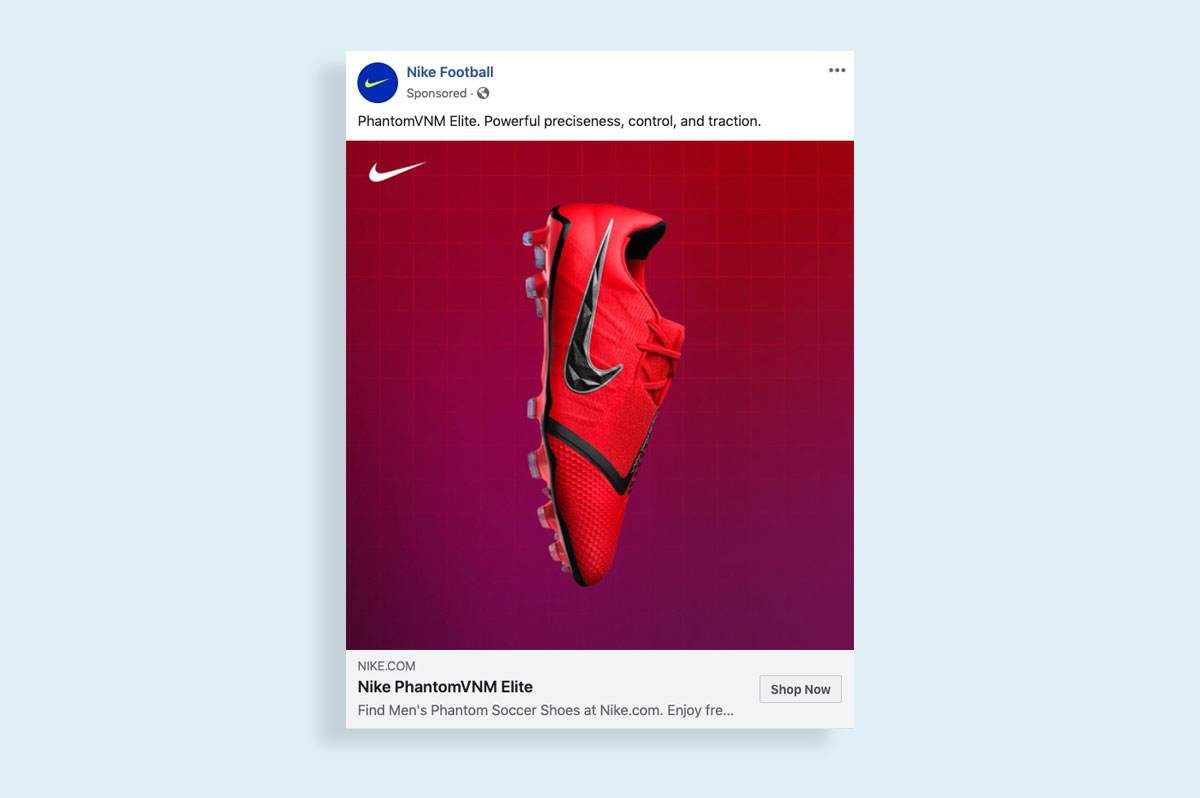
High-resolution photos, edited to enrich the color scheme, may immediately draw the user’s eye. Additionally, putting your brand logo in the middle of a beautiful colored background may enhance their perception of your product line. To increase sales on Shopify, you need to demonstrate that your digital ads compete with the sleek professional designs found across the web.
Keys to Digital Ad Design Success
To successfully increase your Shopify sales, Ad360 has provided a few key pointers to follow when deciding on your final ad design:
1. Use high-resolution photos of stock photos, models, or your product centered on the ad visual
2. Pick colors that complement each other
3. Use big colorful fonts for a short, eye-catching message (e.g. ’50$ OFF!’)
4. Put your product or brand logo behind beautiful yet simple colored backgrounds with bright or neutral hues
5. DO NOT CROWD THE VISUAL OR OVERCOMPLICATE. ONE PRODUCT, ONE IMAGE! Only use multiple images if you have a specific design model in mind
6. Gifs and videos work too, but make sure the thumbnail is as aesthetically pleasing as a still visual
Ad360 Can Automatically Generate Eye-Catching Visuals for Your Business
A recent survey found that a majority of e-commerce business owners would prefer automatically-generated ad visuals and designs: it would save them precious time to focus on day-to-day operations. Thus, it could be argued that automating your ad visuals is a keystone to increasing sales on Shopify.
If you want to try automating your ad visuals, try a free demo by Ad360 today! On top of a centralized dashboard for all ad campaigns, as well as making ad campaign creation as simple as one click, Ad360 automatically extracts data from your Shopify store to create ad visuals. From there, you will have multiple options of which one to release across the web, drawing in more visitors and increasing your sales on Shopify 😊